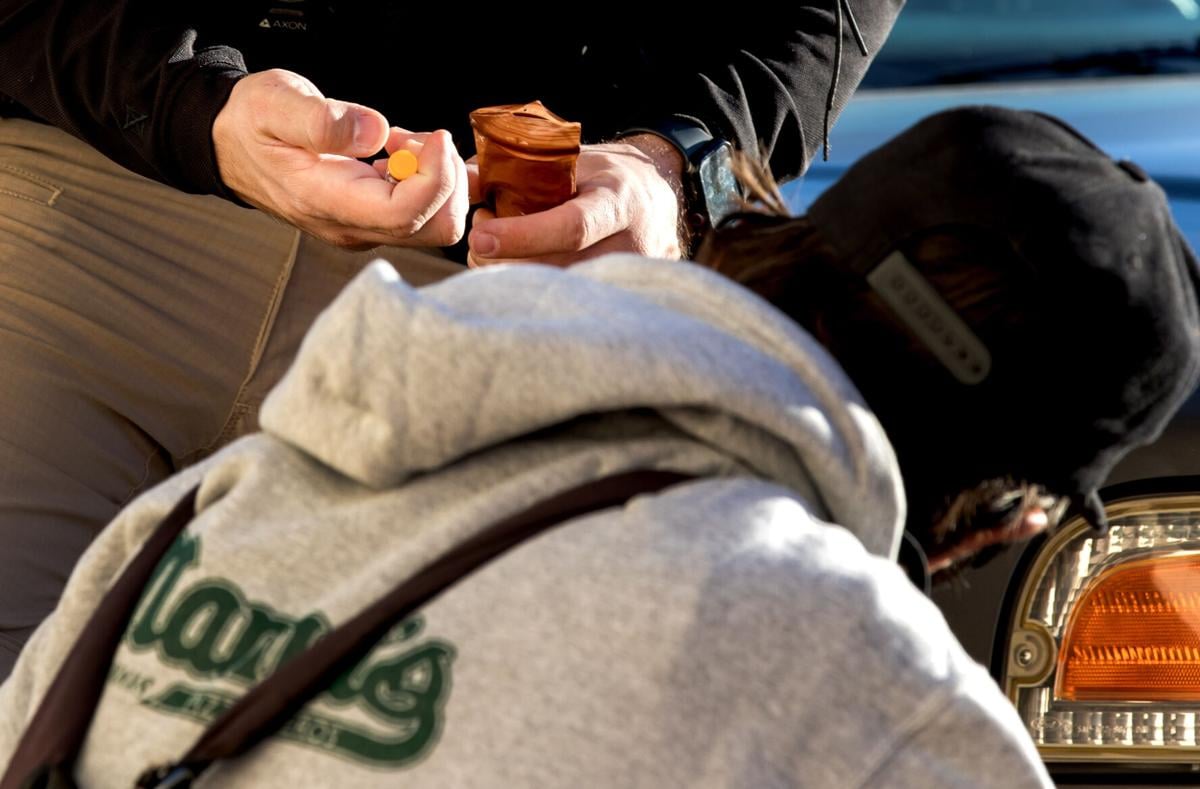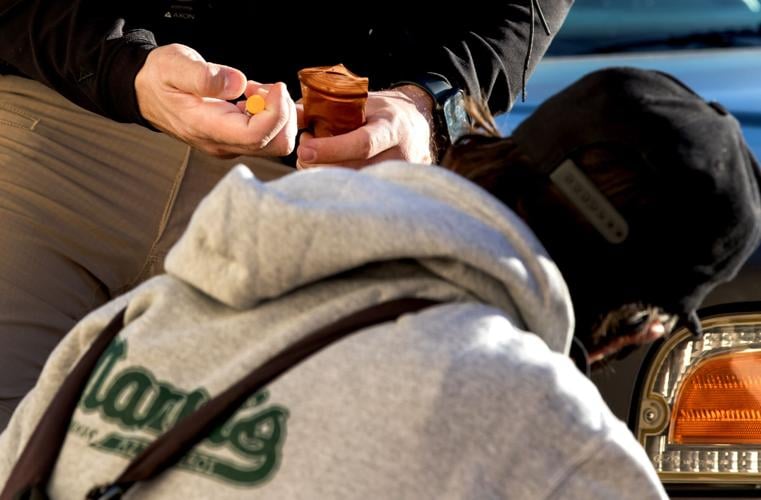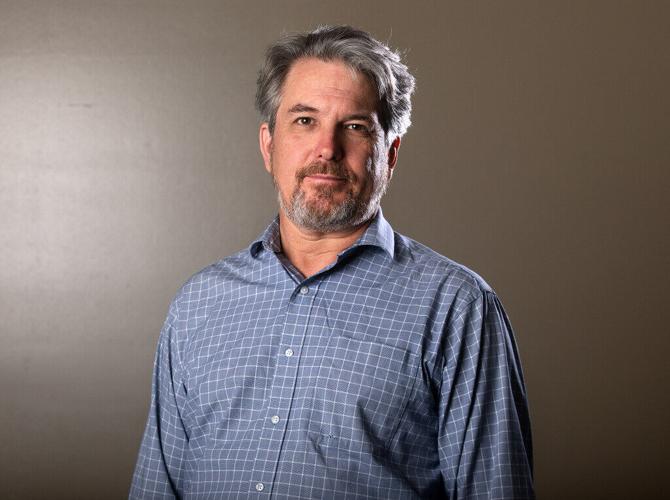It’s one of the biggest social issues of the current era, a problem slamming ����ֱ��, ����ֱ�� and the United States.
But Joe Biden didn’t talk about it.
Neither did Barack or Michelle Obama.
Or Tim Walz.
Or even Kamala Harris, the potential next president of the United States.
In four marathon days of Democratic National Convention speeches, the issues of addiction, opioid use, drug treatment and rehabilitation barely came up at all. And when these issues did arise, a handful of times, they came up in the same way Republicans deal with the issue: By talking about international drug trafficking and criminal enforcement.
The idea of helping the millions of Americans who are already addicted and trying to prevent others from getting hooked — the Democrats left that on the table. They left the issue and the context to Republicans.
People are also reading…
The GOP has pounded this issue for years — to their credit, though usually they talk about it in a misleading context. They say it is “open border” policies that are primarily responsible for the surge in addiction — that is, that this is strictly a supply problem.
That ignores the origins of our epidemic in the over-prescription of opioid painkillers starting about 25 years ago. And it ignores the demand side of the equation — Americans’ insatiable desire for the cheap high of fentanyl and other strong drugs.
But at least the Republicans talk about it. An ����ֱ�� woman named Sarah Workman spoke on the first day of this year’s Republican National Convention and made this case succinctly.

����ֱ�� columnist Tim Steller
“The Democrats’ open border policies have shattered my family,” Workman said. “With drugs so readily available, my husband fell victim to the drug epidemic. It tore our family apart, and now I raise my son alone.”
This is a story that millions of Americans can tell. In my own extended family, we lost one young member with boundless life and potential to a relapse early this year. Other members remain trapped by addiction.
Faulty treatment system
This phenomenon is usually boiled down, in our politics, to a supply issue, as if strong enough border policies would really stop these bags of pills from coming across from Mexico, or Colombia, or China, or wherever the traffickers wish to send it from.
I’ve said this before: That is never going to happen. If we couldn’t stop the supply of bulky marijuana over 50 years of costly Drug War, then we’re never going to stop the supply of tiny, addictive pills. They are too easily brought across in vehicles at the ports of entry, in cargo containers, strapped onto pedestrians and via any other route the profit-seeking mind can imagine.
Besides, if we really were to stop the pills from coming across the border, I’d expect domestic suppliers to start production immediately.
So, we’re going to have to work on ourselves. And we have plenty of work to do.
Talk to anyone who has been involved in the substance-abuse rehabilitation system, and they’ll tell you it’s hard to access and navigate, even for those who really want to get better.
That’s especially bad, because most people in full-on addiction say they don’t want help. But those who do want help still encounter problems like:
— No space available at detox centers
— Little or no help transitioning from detox centers to rehab centers
— Rehab stays that are too short to prepare people for being out of treatment
— People punished for relapses in ways that hasten their return to drugs
— Little or no help transitioning out of rehab centers and into the general public.
“The detox centers are supposed to provide transportation directly to treatment,” said Rachel Dawkins, a ����ֱ��an who has helped others navigate the treatment system. “The ideal situation is someone detoxes, and while they’re in detox, they get a referral to a treatment center for 30, 60 or 90 days. Then they have direct transportation.”
“Some of the people can get detoxed, but the detox facilities are not referring them to treatment,” she said. “They’re giving them a list and having them call themselves.”
Sometimes detox takes place at a rehab center, as part of a 30-day treatment regimen. It’s simply not enough time, said Kelsey Slater, a ����ֱ��an who told me she went through about 18 efforts before the latest one clicked.
“Thirty days was not enough,” Slater said. “Ninety days was not enough. You don’t have enough time to deal with everything that created the addiction in the first place.”
After getting out of jail in April 2023, Slater told me, she got into a year-long recovery program with Gospel Rescue Mission that has worked.
Forcing treatment on people
Another of the big discussions going on in this realm is whether to adopt involuntary treatment laws. Imagine, for example, a system to force people with substance-use disorder — that is, addicts — into treatment. Most states have entertained such laws, including ����ֱ��, and a few have adopted them.
Last legislative session, Sen. Justine Wadsack, the outgoing ����ֱ�� Republican, introduced a bill that would have allowed people to petition for some people with substance use disorder to be forced into treatment. It didn’t pass, but it’s an idea being discussed across the country that could come into play especially when people addicted to drugs overdose or get charged with a crime.
It’s a risky idea that could infringe on people’s civil rights and probably wouldn’t work for many people.
What do the Democrats think about it? I have no idea.
Now, there is a small section called “Beating the Opioid Epidemic” in the Democratic platform. (����ֱ�� Mayor Regina Romero was co-chair of the platform committee.) But it doesn’t propose anything forward-looking, instead defending the administration’s record and decrying Donald Trump’s potential impacts on the issue of recovery.
“The Biden-Harris Administration is strengthening prevention, investing in treatment and expanding recovery support services,” it says.
In contrast, the Republican platform says things like this: “We will deploy the U.S. Navy to impose a full Fentanyl Blockade on the waters of our region—boarding and inspecting ships to look for fentanyl and fentanyl precursors.”
Blockades vs. treatment
Now, naval blockades, silly as that idea is, are clearly a federal issue. I grant that it’s not so clear what the federal role would be with the detox, treatment and transitional systems that usually operate at the local, regional and state level.
But that doesn’t mean federal candidates and officeholders couldn’t have some impact on the problem if they focus on it. And it certainly doesn’t give national parties license to ignore our inadequate existing solutions to one of our biggest national problems.
How easy it would have been for one of those headliners, even Harris herself, to pledge, “We will insure that everyone who wants help breaking out of their addiction gets high-quality, long-lasting treatment.”
If Democrats don’t come up with possible solutions on the demand side of this crisis, all we’ll be left with is blockades, border walls and other doomed efforts to stifle supply.













